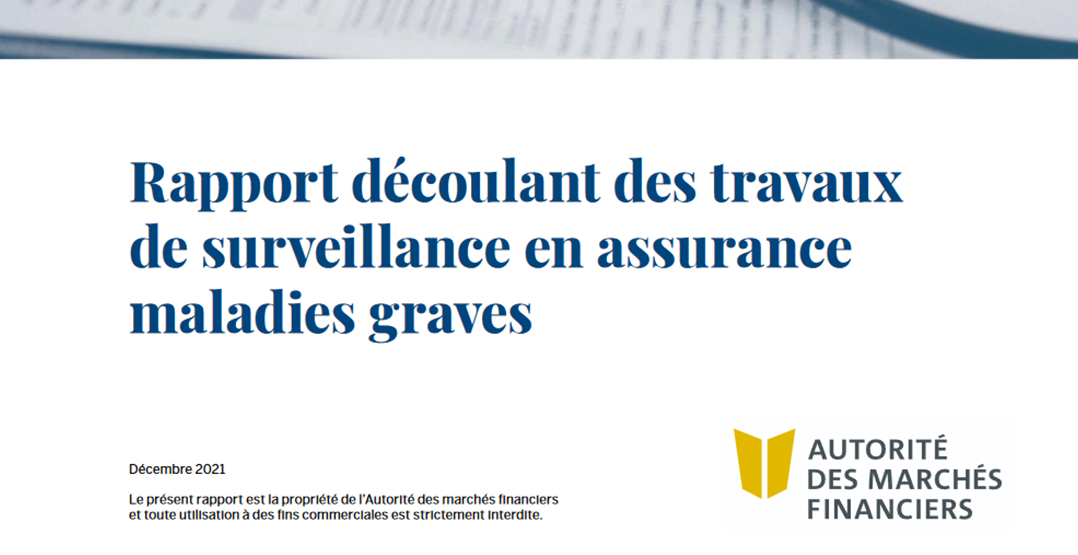AMF report on critical illness insurance practices

L’Autorité des marchés financiers a publié en décembre dernier son Rapport découlant des travaux de surveillance en assurance maladies graves qui résulte de l’analyse qu’elle a menée sur les pratiques ayant cours dans l’industrie de l’assurance au Québec en ce qui a trait à l’assurance maladies graves (AMG), appelée également « assurance maladies redoutées ».
To ensure the fair treatment of consumers, and in light of the AMF’s findings on insurers’ sales practices, certain improvements will need to be made.
For the purposes of its study, the AMF analyzed the operations of 22 insurance providers with a combined market share of nearly 95% in the major classes of life and accident and sickness insurance.
The AMF states that its recommendations should enable consumers to:
- Better understand the product and scope of coverage being offered.
- Make informed decisions about a product’s added value and how well it meets their needs.
- Know their rights and obligations and exercise them in a timely manner when required.
CSF members should pay particular attention to the findings presented in the report, which clearly demonstrate that consumers don’t always understand the characteristics of the products they’re buying.
According to the AMF, insurers should take the following corrective actions, among others:
- Ensure that product documentation and advertising materials are not confusing or misleading to the consumer.
- Do more to help consumers properly understand the product.
- Guide and communicate with the insured so that they are informed and they understand their rights and obligations and know when to exercise them.
- Provide more tools to distribution channels so they can adequately advise their clients.
- Facilitate procedures for submitting claims, handling complaints and resolving disputes.
The corrective actions taken by insurers in response to the AMF’s findings and recommendations must ultimately ensure the fair treatment of consumers.
20% of claims denied
One out of every five claims (20%) submitted by insureds is denied by their insurance company.
According to AMF data on the range of insurance products available in the industry, insurers with a denial rate higher than 10% should ask questions and assess the causes.
In particular, insurers should determine if their claims denial rate undermines the fair treatment of consumers, and if so, take appropriate measures to resolve the situation.
Approximately 5% of insureds who had their claim denied requested a review. In over 80% of these cases, insurers maintained their decision not to pay out the claim.
More than 60% of claims denials are related to limitations and exclusions, pre-existing conditions, not meeting a definition, and survival and waiting periods.